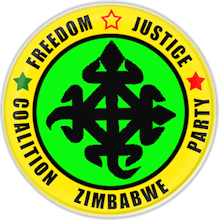One of the reasons we have a failing democracy is because there is no fair balance in terms of political party funding for a multi-party environment.
It's a well known fact that we cannot have politics without money, but on the same notion money is also dangerous where institutions do not have effective transparency and accountability measures in place to monitor financial activities.
Zimbabwe does not have rich parties, but parties whose funds do not have a clear audit and can easily be used to buy votes especially taking into account the difficult economic conditions affecting the larger section of our electorate and the fact that there are no checks and balance mechanism in place that can be enforced where such activities are taking place. Aspiring MP's usually appear towards election time and rarely have an efficient time-table they use to to talk to citizens in their constituents on a regular basis thereafter.
With the growing influence that comes from financially powerful actors, we have seen how donor funding can easily shape government policy and corrupt and pervert its procurement decisions. We have seen cases where personal or factional war chests can fuel internal divisions, fund vote buying in internal elections, and accelerate factionalism. in political organisations.
Ultimately as most of us now know, money can corrupt a political system and, in the long term, destroy political parties and delay national development objectives at the expense of elitism and hunger for power.
Three symptoms point to the need for comprehensive reform of money and politics in Zimbabwe today:
1. Loss of democratic accountability of political parties to citizens, and within political parties.
2. Increased campaign spending by the bigger political actors, matched with declining electoral participation and fair competition.
3. A decrease in public trust and participation in electoral politics.
Until we have an electorate with changed attitudes, our politics will remain focused on leadership personalities with not much interest directed towards understanding institutional frameworks and how policy and process can be used effectively to hold leadership accountable for their decisions and actions.
"The gap between known public funding and expenditure estimates
remains considerable. … It is in this non-transparent and
unregulated space that both established and emerging businesses,
as well as wealthy individuals, are able to engage in the purchase of
political and policy influence, as well as of lucrative state contracts."
When political parties come to rely on the financial support of a few – not just the votes of a majority – to win and maintain power, public accountability and internal party democracy are undermined. Public funding of political parties currently accounts for only a small fraction of the total funds parties raise. The rest – amounting to millions per year, most of it undisclosed – comes from private sources whose interests cannot be automatically assumed to represent the broader public interest.
The loss of democratic accountability through unregulated party funding extends
to the internal power dynamics of political parties. If we had strong institutional foundations, we would not have leadership continuity problems and corruption which exists from political party levels. If the structures were solid, individual leaders would find it hard to survive as people would understand how to utilise internal process to demand answers from their executive leadership structures.
"While private party funding remains unregulated in Zimbabwe,
opportunities for wielding unfair influence or bribery remain."



No comments:
Post a Comment